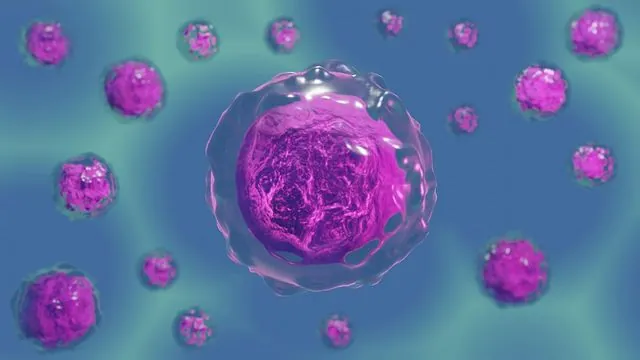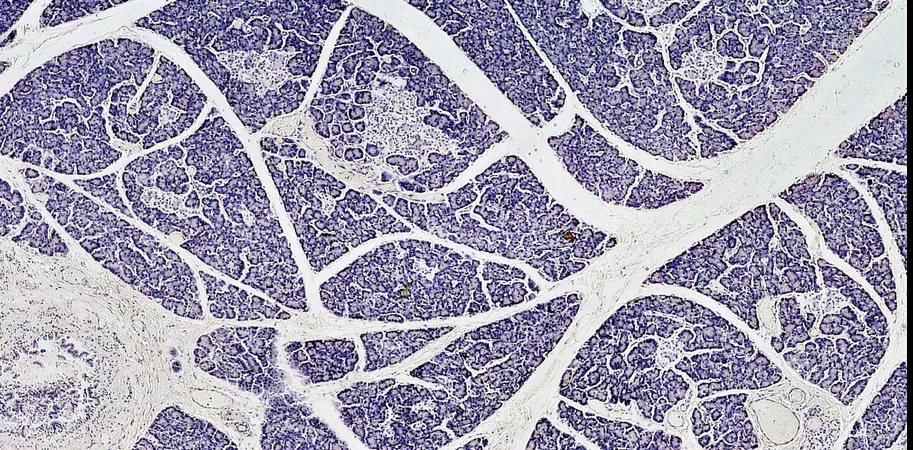
Shocking Discovery: Even the Simplest Cells Can Learn!
2024-11-20
Author: Amelia
Introduction
When we think about learning, images of dogs sitting on command or people tuning out the low hum of a washing machine often come to mind. These actions exemplify habituation, a basic form of learning where an organism decreases its response to a stimulus after repeated exposure. Surprisingly, recent research reveals that even simple, single-celled organisms like amoebae and ciliates—and even our own cells—can exhibit this fascinating capacity to learn, challenging long-held beliefs about cognition and adaptation.
Background
Traditionally, scientists believed that habituation was the exclusive realm of complex creatures with sophisticated nervous systems, including worms, insects, birds, and mammals. However, a groundbreaking study from Harvard Medical School and the Centre for Genomic Regulation (CRG) in Barcelona has changed that narrative. Published in Current Biology, the findings suggest that organisms once thought to be 'brainless' are engaging in more complicated behaviors than previously recognized.
Research Insights
Senior author Jeremy Gunawardena, an associate professor at Harvard's Blavatnik Institute, highlighted the intrigue of this research: "How do cells without brains manage something so complex?" This question underscores the potential for a paradigm shift in our understanding of cellular behavior.
In an innovative approach, the researchers moved beyond conventional laboratory studies, employing advanced computer modeling to analyze how molecular networks within both ciliate and mammalian cells respond to various stimuli. They identified four distinct molecular networks displaying characteristics of habituation commonly seen in animal brains.
Findings
One of the most astonishing discoveries was the presence of two different types of "memory" within these networks, each with unique decay rates. This dual-memory system indicates that single cells are capable of processing and retaining information over time, suggesting a complexity in their functions previously unappreciated.
Implications
The implications of this research are profound. Understanding how these single-celled organisms learn and adapt may shed light on broader mechanisms of learning. The idea that these tiny beings are not just basic molecular machines, but active agents capable of learning, opens exciting new avenues for research.
Future Applications
But could this knowledge translate into real-world applications? While still speculative, there are daring possibilities. For instance, the researchers suggest that understanding habituation could provide insights into cancer and immune response. Tumors often evade immune detection by masquerading as normal cells, leading immune cells to become "habituated" and stop responding. If scientists can decipher how this misperception occurs in immune cells, it may be possible to reprogram them to recognize cancer cells as threats, prompting a more effective immune response against tumors.
"It's a fantasy right now, but it is a direction I would love to explore down the road," Gunawardena stated, hinting at potential breakthroughs in cancer treatment that could stem from this research.
Conclusion
As research continues and our understanding of single-cell cognition expands, one thing remains clear: the learning capabilities of even the simplest organisms resonate far beyond the microscopic world, pushing the boundaries of what we know about life itself. The quest for answers in this remarkable field has just begun, and who knows what further surprises lie ahead?









 Brasil (PT)
Brasil (PT)
 Canada (EN)
Canada (EN)
 Chile (ES)
Chile (ES)
 España (ES)
España (ES)
 France (FR)
France (FR)
 Hong Kong (EN)
Hong Kong (EN)
 Italia (IT)
Italia (IT)
 日本 (JA)
日本 (JA)
 Magyarország (HU)
Magyarország (HU)
 Norge (NO)
Norge (NO)
 Polska (PL)
Polska (PL)
 Schweiz (DE)
Schweiz (DE)
 Singapore (EN)
Singapore (EN)
 Sverige (SV)
Sverige (SV)
 Suomi (FI)
Suomi (FI)
 Türkiye (TR)
Türkiye (TR)